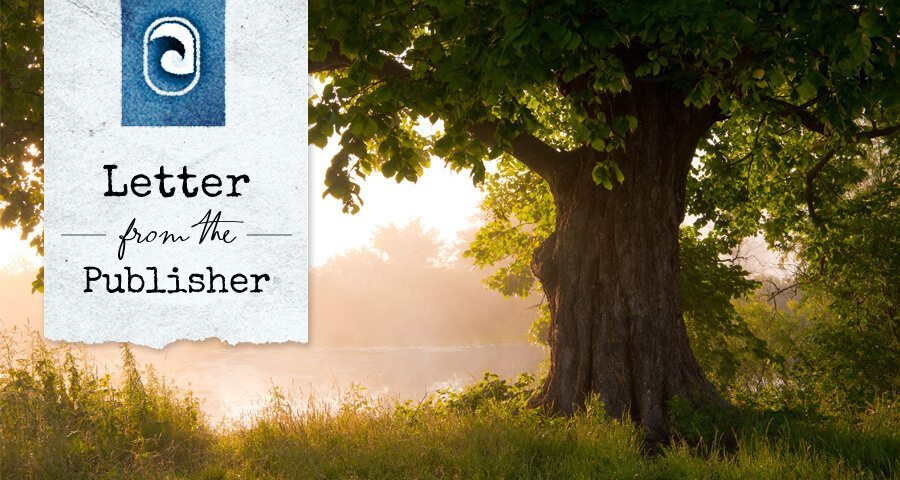“Western man has no need of more superiority over nature whether inside or outside. He has both in an almost devilish perfection. What he lacks is conscious recognition of his inferiority to the nature around him and within him. He must learn that he may not do exactly as he wills. If he does not learn this, his own nature will destroy him. He does not know that his own soul is rebelling against him in a suicidal way.” —C.G. Jung, The Earth Has a Soul
Dear friends,
Today is a day we honor and celebrate our planet. Throughout the 1950s and into the 1960s, the post-war United States was busy building economies and infrastructure while the environment was not even an afterthought. Pollution of our air and water was the cost of progress, and there was no environmental movement to ask needed questions or challenge the status quo. But the seeds of change had been planted in 1962 with the publication of Rachel Carson’s Silent Spring, in which she highlighted the dangers of DDT and its effects on bird populations. The book created enough awareness that it ultimately stimulated legislation to ban DDT, which in turn allowed avian breeding populations to stabilize and rebound. The burgeoning environmental movement that resulted fed off the civil rights and anti-war movements, and as the 1960s came to a close, new ideas to highlight environmental concerns coalesced.
Earth Day was created through the vision of Gaylord Nelson, a Democratic senator from Wisconsin, after witnessing an oil spill off Santa Barbara in 1969. He envisioned a “national teach-in on the environment” and created a bipartisan coalition to help build the effort. The first Earth Day took place in 1970 and is celebrated to this day each April 22nd. It was extremely successful and shifted the awareness of environmental issues into mainstream consciousness.
From the focus on pollution in the 1970s, to the 1990s with the emphasis on resource use and recycling, to the 2000s onward with the struggle to create awareness and action around climate change, the interest in Earth Day has ebbed and flowed. While initially started through a government action, the celebration has been sustained through grassroots activism and support. And today, while Earth Day has become a central theme for events in towns and cities across the country, it remains a strong focus among activist groups and has come to take on greater meaning. For many in the burgeoning new culture of change-makers, Earth Day has come to represent a major holiday: a day to reflect on our relationship with the planet and each other as a collective. This perspective embodies the tenets of spiritual ecology that argue that sustainability and environmental activism have a moral component and that defending against greed and apathy requires a spiritual awareness and awakening.
I see this perspective on display as I consider the wide range of Earth Day events near where I live in the San Francisco Bay Area. In addition to the nearly thirty municipal events, there are many events sponsored by local groups that embody the goals of spiritual ecology. Events include the Earth Day Birthday: Healing as an Act of Resistance at the Gill Tract Farm in Albany, Transition Berkeley’s Transition Streets Kick-Off, Groundwork Richmond’s Earth Day on the Greenway, Rooted in Resilience: Bay Localize 10 Year Anniversary Brunch in Oakland, and there are many more. I will be representing North Atlantic Books at two events in Southern California with Vandana Shiva at The Oak Grove School in Ojai and Pacifica Graduate Institute in Carpinteria, and I look forward to celebrating Earth Day in these communities. I invite you to explore what local events are happening in your area and join the wider celebration of our global community.
Thanks for reading,
Doug Reil
Publisher
Executive Director
North Atlantic Books
